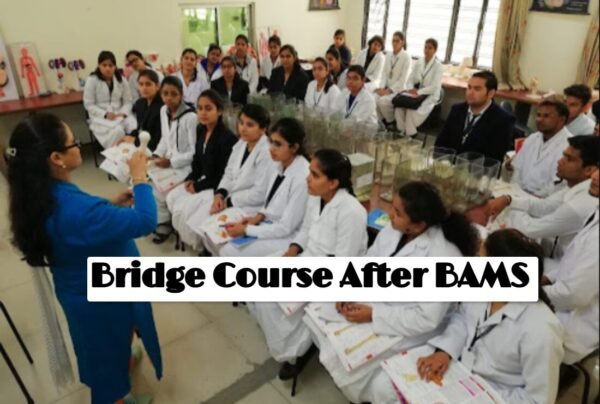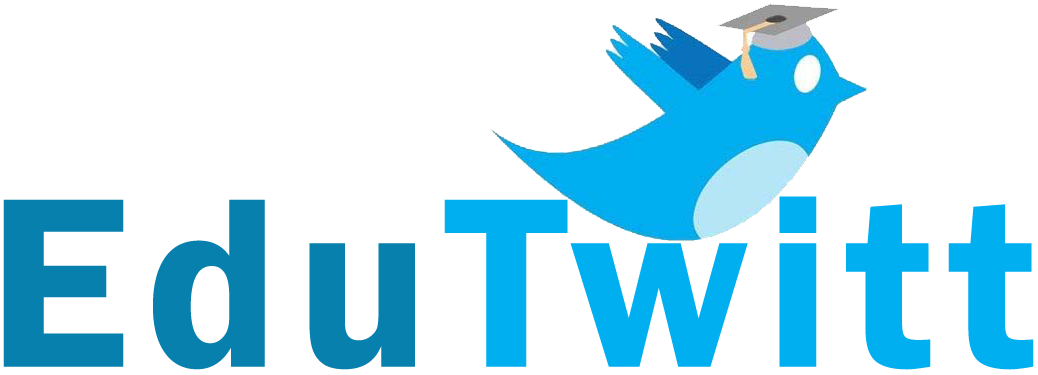
The field of medicine is continuously changing. Innovative breakthroughs and new technologies occur frequently due to advances in technology and a robust infrastructure. A thorough understanding of the world provides great opportunities for anyone. If you are a student who recently successfully completed their BAMS course the bridge course could prove to be a great aid. In order to gain the most important understanding and practical knowledge regarding the field in a real professional context These courses provide excellent opportunities. In this article, we will discuss the Bridge Course After BAMS in greater detail.
Bridge Course After BAMS
Understanding Bridge Courses
A special bridge course that follows bams lets graduates to join related fields or gain specialization. These courses assist BAMS alumni develop their careers and enhance the quality of healthcare. These programs increase BAMS graduates’ dynamism and ability to compete in the constantly changing healthcare industry by providing additional knowledge and training. Bridge courses allow BAMS graduates explore different options as they learn about the specialized areas of healthcare, and be able to adapt to market trends, helping them develop professional and personal growth.
Eligibility Criteria
Knowing your eligibility for bridging courses following the BAMS is essential. The recommended eligibility for bridge courses is contingent upon these factors. Bridge courses that are based on BAMS are based on these criteria and may differ according to institution and course:
1. Possession of a BAMS Degree:
Bridge course students must hold an BAMS from an accredited institution. This is the basic certificate that serves as the first step towards advanced studies and specialization.
2. Meeting Minimum Percentage Criteria:
Bridge courses can require an aforementioned minimum percentage of BAMS applicants. It is necessary to meet the course’s academic specifications. Failure to meet the academic requirements can affect your chances of being accepted.
3. Relevance of BAMS Subjects:
Your BAMS degree could include a specific bridging requirements for your subject. Your BAMS degree might require classes in pharmacology to study Ayurvedic Pharmacology. Examine the institution’s bridge course prerequisites prior to registering.
4. Completion of Internships or Practical Training:
A lot of bridge programs require BAMS degree candidates to complete internships or practical training. The hands-on experience is typically required to qualify for the specialization. Institutions might require hands-on training to confirm the eligibility of applicants. Keep records of your practical or internship experience is vital.
The eligibility requirements for bridge courses differ based on the type of course or specialty and also the institution’s limitations. Bridge course applicants should be sure to read the qualifications carefully. If you do this you will be able to confirm that you have met all the requirements prior to applying.
Understanding your eligibility is the first step in pursuing the bridge course that follows BAMS. You could enhance your job prospects and enhance your profession of healthcare by reviewing and completing these prerequisites to take part in the specialization program of your choice.
Application Process
Do you want to know what you can do to apply for a bridge course following bams? Follow the procedure below to submit your application.
Research and Choose a Course:
Explore the many bridge courses available to start your study. Examine a range of options and evaluate important factors that affect the choice you make.
Check Eligibility:
Review the prerequisites for the bridge course prior to proceeding. It is essential to meet the prerequisites to avoid delays in application.
Gather Required Documents:
Bridge course applications require documentation. Collect all the required documents in order to streamline the application.
Fill Out the Application Form:
The application form for the bridge course provider’s form is vital to progress. This form is essential to the course you choose Therefore, make sure you fill it out completely.
Application Fee:
Some schools charge application fees. The cost varies for each institution, so be sure to read the requirements for applying carefully.
Make sure you pay the application fee in time to ensure an efficient and accurate application. Issues with payment could cause delays or denial of your application.
The confirmation of the application fee and adhering to the payment procedures of your institution shows your dedication to the process of applying and your compliance with the guidelines, creating a favorable impression when you are studying.
Submission of Application:
The next step on getting your foot in the door is to submit your application along with other supporting documents. The procedure for submission at the institution, whether physical submission or upload online adhered to.
It is crucial to apply now. Apply before the deadline for your institution. Late submissions can be rejected, potentially compromising the position of the bridge course. Be aware of and adhere to the deadline for submissions.
Entrance Examination (If Applicable):
Bridge courses differ in enrollment depending on the topic and the institution. Students may be required to be required to pass an entrance test. It is essential to prepare for the exam since it will affect the admission process.
To be prepared properly, learn the format and content of the exam. It is necessary to study exam curriculum or specific courses for institutions and subjects. Knowing these subjects increases confidence and improves performance.
Interview (If Applicable):
If the bridge course you choose involves an interview, be prepared carefully. Schools interview applicants to find out about their abilities, aspirations and motives.
These interviews will examine your academic achievements, academic history and experiences. You should detail your academic background.
Admission Notification:
You should wait for an admissions notification after submitting your application and being accepted. It confirms your bridge course acceptance as well as provides important academic details.
Acceptance letters include dates for the start of your course. This vital information will aid you in planning your schedule and ensure an academic success.
Fees for Bridge Courses
Bridge courses allow students to acquire abilities quickly and improve their careers. The cost of these courses are based on a variety of aspects. This will cover the cost of a bridge course as well as budgeting and management.
Factors Influencing Bridge Course Fees
The cost of bridge courses may fluctuate greatly and are influenced by a variety of key aspects:
Average Fees for Bridge Courses
The following elements influence the cost of bridge courses however knowing the price rates can be helpful. Healthcare bridge courses in India cost 25,000-50,000 INR. Estimating financial commitments starts with this number.
Management of Bridge Course Costs
Educational planning requires bridging course financial management. Some spending management tips:
Plan your budget accordingly: Make a specific budget plan to handle the finances of your bridge course. Include textbooks, tuition as well as study materials and equipment. If you are studying abroad, plan for food, accommodation as well as transportation. This financial plan maximizes allocation of resources and helps reduce the financial strain.
Research scholarships and financial aid Explore external and institutional financial aid and scholarships. Many colleges offer merit or financial need specific scholarships for fields. These scholarships can significantly lower costs for bridging courses. Applications for scholarships must be submitted in time and include all the required documents.
Think about government-funded organisations The government schools are more affordable than private schools. They can offer subsidies or discounts that ensure that education is affordable. Bridge classes run by the government could be less expensive.
Some bridge schools offer temporary or part-time jobs to help cover the cost of living and to gain practical knowledge. Find out if your school offers the opportunity and schedule your the school and work schedule according to the program.
The student loan: avoid debt even though student loans can be an alternatives to tuition or other costs. Look for loan terms that are appropriate and repayment plans that align with your professional goals.
Saving and Financial Planning: Financial planning should be a prerequisite to the instruction of bridges. Save or invest money for the cost of living and school. Financial planners and advisers assist you make educated financial choices.
Online or part-time learning: Depending on your job and career goals, think about online bridge or part-time courses. Work-study options can give you with more flexibility.
India is a big fan of Ayurveda’s holistic approach for healing. BAMS graduates typically pursue their studies. BAMS graduates like Ayurveda-healthcare bridge courses. Numerous top universities offer bridge courses to BAMS alumni who have a wide range of desires and career goals. This article will review the top institutions as well as the most important aspects to consider when choosing a bridge course.
1. All India Institute of Ayurveda (AIIA), New Delhi:
AIIA is a top institution. AIIA excels in research and education. With its vast experience, AIIA offers postgraduate and bridge courses. BAMS graduates can take courses in ayurvedic nursing, pharmacy, and research. The courses teach students advanced abilities in specific fields.
2. Rajiv Gandhi University of Health Sciences (RGUHS), Bangalore:
The Bangalore’s Rajiv Gandhi University of Health Sciences (RGUHS) provides BAMS graduates who are interested in management and administration of healthcare. special bridging courses. The programs are designed to prepare students for careers in healthcare. The focus on management of healthcare can assist BAMS graduates to change the way they work in the way they work in healthcare.
3. National Institute of Ayurveda (NIA), Jaipur:
Jaipur’s NIA provides a range of bridge and postgraduate Ayurveda classes. BAMS graduates can take Kshar Sutra and Panchakarma. The courses will offer surgical and therapeutic techniques in addition to the fundamentals. The NIA’s dedication to traditional Ayurvedic techniques and the latest concepts guarantees a complete training.
4. Banaras Hindu University (BHU), Varanasi:
BHU provides pharmacological and Ayurveda-based bridge courses. BAMS graduates can pursue studies in Ayurvedic herbalism and medicine. Students are trained to be able to apply for Ayurvedic medicine and jobs in medicinal plant science.
5. Government Ayurveda Medical College, Hyderabad:
BAMS graduates are prepared their candidates for positions in public health and administration of healthcare through Government Ayurveda Medical College bridge programs in Hyderabad. These programs address the needs of healthcare facilities as well as public health organizations’ changing requirements, preparing graduates to work in public health.
6. Institute of Clinical Research India (ICRI), Mumbai:
ICRI in Mumbai provides clinical research as well as healthcare management bridging programs. These courses are suitable for BAMS students who are interested in research, clinical trials, or healthcare-related policy. The curriculum of ICRI combines theories and practical applications to prepare graduates with the skills needed for a career in healthcare.
Considerations When Choosing a Bridge Course:
The best bridging course following BAMS is dependent on several aspects:
- Recognition and Accreditation Ensure sure your program and school are recognized and accredited. Quality of the course and legitimacy are assured through accreditation.
- Examine the qualifications of faculty and their expertise Quality education demands good instructors.
- Infrastructure: Examine the institution’s facilities. The comfort of studying with appropriate facilities enhances the quality of education.
- Graduate Placements: Examine the record of placement at your school. The assistance you receive with placement can improve your chances of a successful career.
- Alumni Success: Find out about the success of alumni. Stories of success in the workplace could demonstrate the college’s preparation for work.
Conclusion
If you decide to take the best bridge program after BAMS and BAMS, you can be certain that these classes will provide you with a complete breakthrough in all ways. It is important to know the different options available to you and the costs, etc. In accordance with your own interests and financial capacity you will be able to select the appropriate bridge course following this. To make your profession in the medical field better this is a good option.
